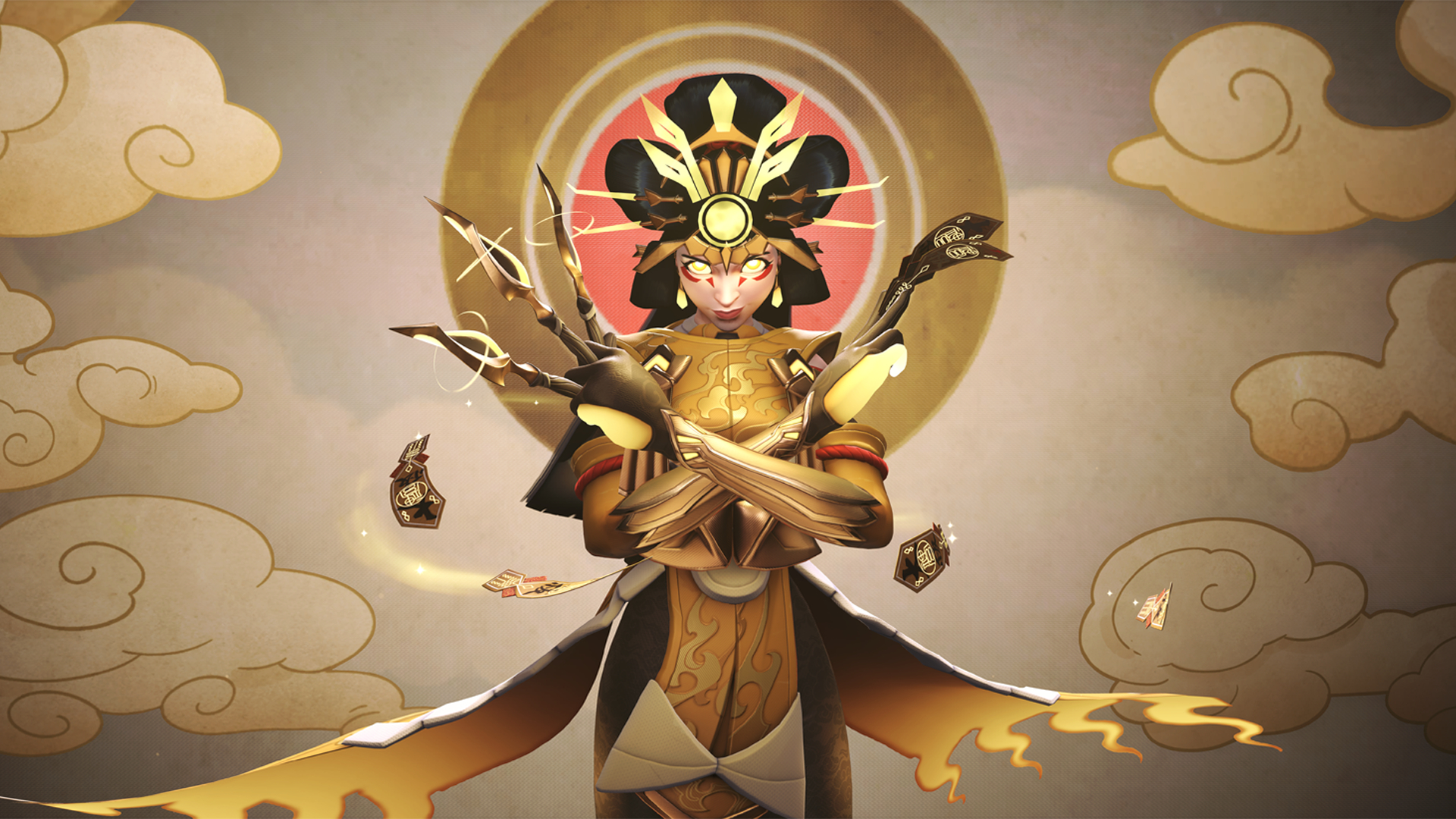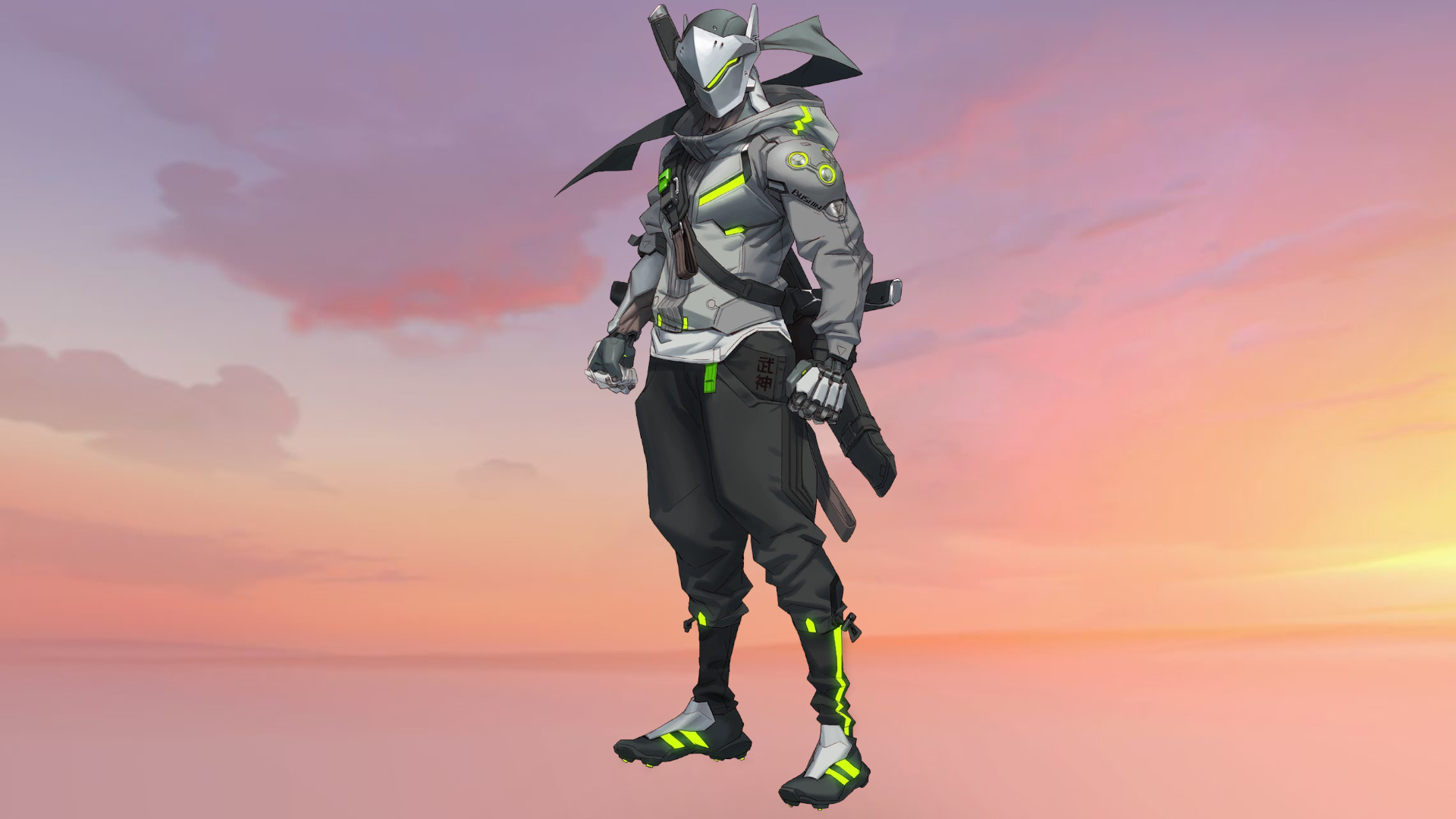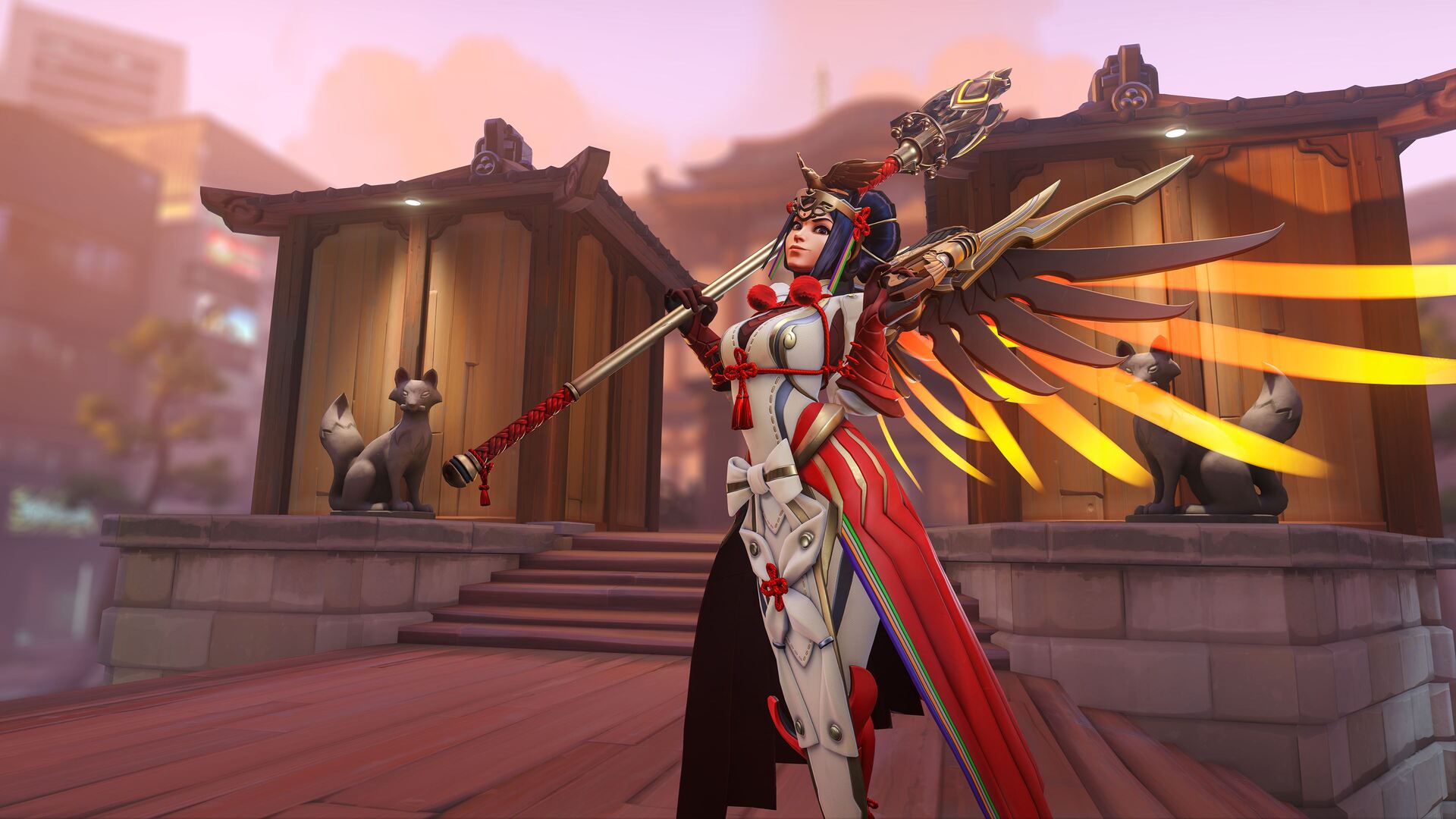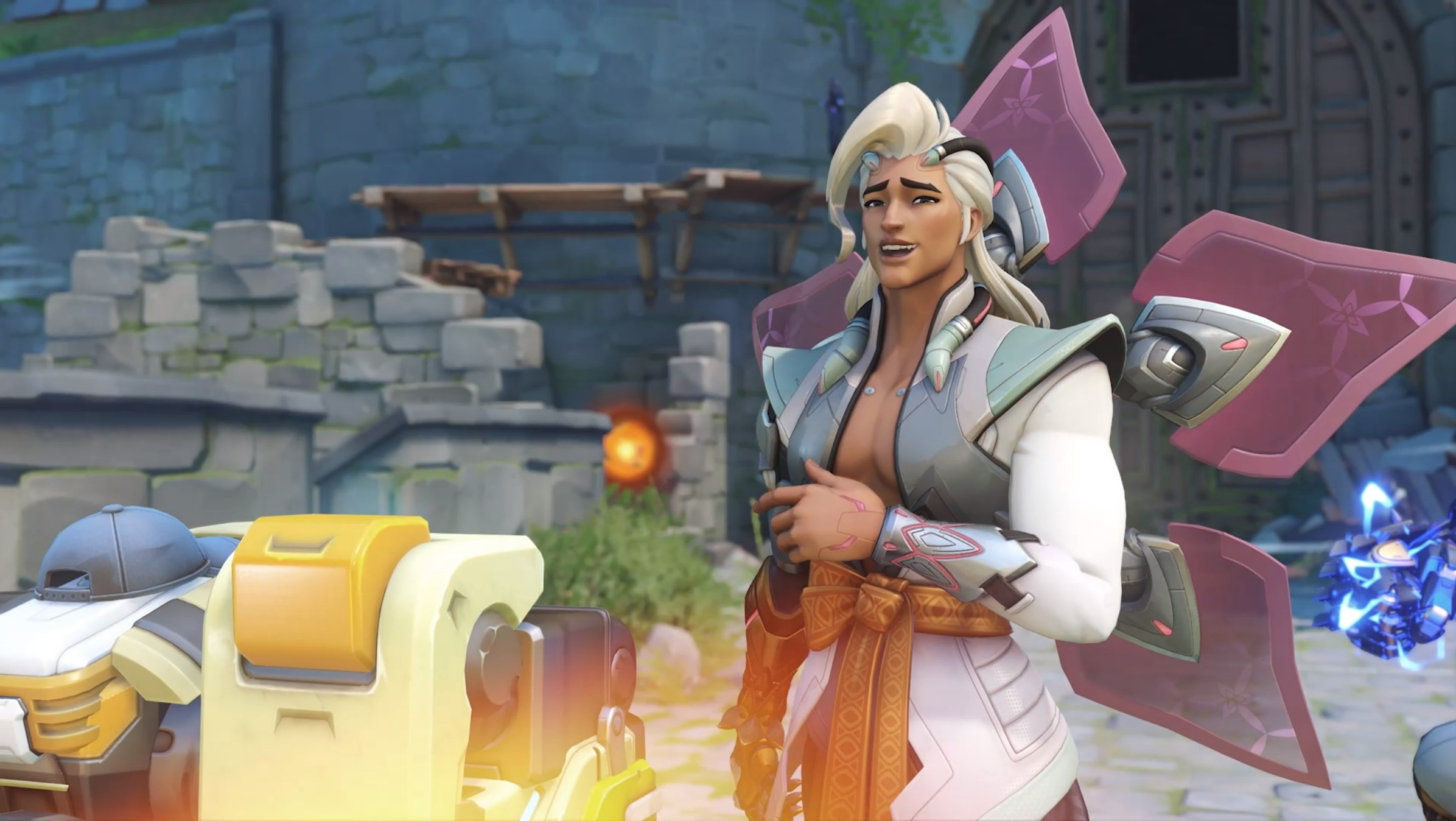Overwatch 2's characters are great but suffer from a big flaw
Hero complex

It was my third ever game of Overwatch 2, and, despite my best efforts, I’d been picked off by an enemy DPS Widowmaker, who did me in with a nasty headshot. I’d had enough of being target practice in the backlines, so I thought I may as well make this heartless sniper’s life a little harder and switch to a support hero with some more mobility. Here comes Moira.
As I respawn, I’m greeted by Moira’s confident Irish lilt. “I’ve dealt with cynics before,” she says, willing us both to get back into the fight. With this one line, I find out more about Moira’s character and temperament than I would in an entire cutscene from a lesser video game.
With this in mind, I empathized with Moira in a big way. She feels unappreciated in her time but moves forward regardless until her goals are met. Moira in a big way. At this moment, she became more than just a blank vector for my multiplayer experience. This expressive, pragmatic, yet jaded scientist had become my companion.
Overwatch 2 is laden with what I call an “exposition economy”. The title is brilliant at conveying huge amounts of information by doing relatively little. Every character in Overwatch 2, from their voice lines to their silhouettes, is calibrated to tell you as much as possible about them as efficiently as possible.
Brothers' war

As a newer Overwatch 2 player, I was blindsided by the sheer amount of characterization and personality that Blizzard could cram into relatively short moments of dialogue. This approach serves to give the game a unique appeal. In contrast to Halo Infinite’s highly customizable, but somewhat bland Spartan soldiers, Overwatch 2’s characters invite you to get to know them as you play them.
It isn’t simply a matter of getting to know the characters as individuals; both their in-setting relationships and their gameplay synergies reflect one another. Aerial rocketeer Pharah and flying medic Mercy have a deep personal relationship which mirrors how well the characters operate when played together. With Mercy behind her, Pharah’s damage output can be radically improved, making her a force to be reckoned with on the battlefield.
Long-lost brothers Hanzo and Genji offer compelling synergy while being two sides of the same coin
Long-lost brothers Hanzo and Genji offer similar synergy while being two sides of the same coin. As two scions of the Shimada Clan and its criminal empire, both brothers responded very differently to the burden of power. Hanzo attempted to play the role of the perfect heir until he was forced to kill Genji, who had pursued a hedonistic playboy lifestyle instead. Genji was eventually reborn, Metal Gear Solid-style as a cyborg ninja, while Hanzo denounced his family and traveled the world, seeking atonement.
Get daily insight, inspiration and deals in your inbox
Sign up for breaking news, reviews, opinion, top tech deals, and more.
In a tear-jerking cinematic, the brothers begin their road towards reconciliation. As you might expect, both have very different yet surprisingly complimentary playstyles. Genji is a fast-moving assassin who does best at close range, where he can use his katana. Hanzo, by contrast, uses precise shots from his bow, best used at medium to long range. The characters’ personalities are reflected in their playstyles, just as their relationship is reflected in how these playstyles complement one another.
Who watches the Overwatchers?

That said, Overwatch 2 has taken over six years to get to where it is today, and, even now, some aspects of how Blizzard treats their characters leave much to be desired. As expressive as elements of the characters’ designs can be, Blizzard has had a long-standing problem when it comes to the representation of women.
Let’s look at game’s the poster girl: Tracer. On paper, Tracer is an excellent character. She has a compelling origin story, in the form of a test flight gone wrong, and acts as the optimistic heart of the Overwatch team. She is even an openly lesbian character and has a girlfriend who was revealed in the Overwatch comics. However, there are two issues here. The first is how Blizzard chooses to present Tracer visually. Though her flight jacket and visor do a great deal to tell us about her origins, Blizzard has a tacky habit of placing its female characters in skintight bodysuits.
I initially thought my game was glitching when I saw Widowmaker for the first time
Aloof sniper Widowmaker, for instance, has bizarre proportions, bortdering on the parodic to the extent that I initially thought my game was glitching when I saw her for the first time. That said, this problem isn't exactly ubiquitous. Characters like the stalwart Brigitte, thoughtful Kiriko, and brazen Junker Queen don reasonable and expressive outfits – the kind of outfits that empower rather than objectify. That said, Blizzard’s choice of attire for the earlier Overwatch heroines remains dubious.

The second issue comes in the form of representation. Overwatch 2 has three LGBTQ+ characters: Tracer, Soldier 76, and Lifeweaver. Unfortunately, Blizzard's storytelling apparatus treats Tracer and Soldier 76’s same-sex relationships very peripherally. Heterosexual flirting is common in Overwatch 2’s dialogue, but in my over 100 games of Overwatch, I have not once heard Tracer flirt with a woman or Soldier 76 with a man.
In my over 100 games of Overwatch, I have not once heard Tracer flirt with a woman or Soldier 76 with a man
The suave and distressingly handsome Lifeweaver offers something of a departure, however. It was gratifying to hear Overwatch 2’s first pansexual character openly flirt with Baptiste, another male character, during a match the other day. I hope Lifeweaver’s inclusion in the game’s roster may help others come out of the closet.
That said, these issues are not as egregious as they once were, and Overwatch 2 is certainly moving in the right direction. In addition, despite the game’s flaws, the “exposition economy” in Overwatch 2 remains exceptionally impressive, and the characters make for a fascinating ensemble that makes me yearn for Blizzard to deliver more story-driven content for the game.

An editor and freelance journalist, Cat Bussell has been writing about video games for more than four years and, frankly, she’s developed a taste for it. As seen on TechRadar, Technopedia, The Gamer, Wargamer, and SUPERJUMP, Cat’s reviews, features, and guides are lovingly curated for your reading pleasure.
A Cambridge graduate, recovering bartender, and Cloud Strife enjoyer, Cat’s foremost mission is to bring you the best coverage she can, whether that’s through helpful guides, even-handed reviews, or thought-provoking features. She’s interviewed indie darlings, triple-A greats, and legendary voice actors, all to help you get closer to the action. When she’s not writing, Cat can be found sticking her neck into a fresh RPG or running yet another Dungeons & Dragons game.